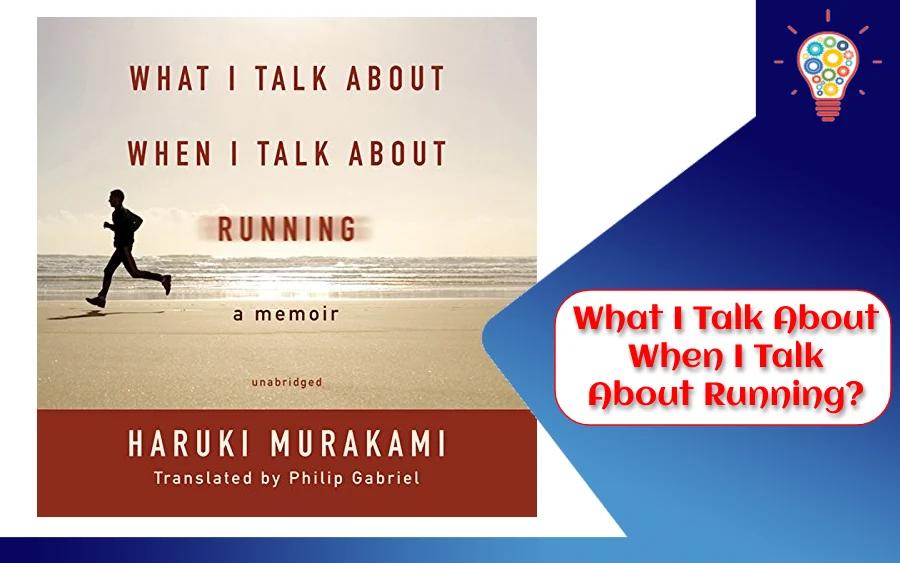What I Talk About When I Talk About Running by Haruki Murakami is a memoir about long-distance running. Translated by Philip Gabriel, this book tells the stories of Haruki, a writer who started running in his teens and has since completed over twenty marathons and ultramarathons. He has written about running, life, and the fleeting nature of life.
Table of Contents
Haruki Murakami’s exemplary life
Murakami likens writing a novel to run a marathon. Both require training the body to cover the distance, which in turn requires effort and determination. Writing is a process that involves working in solitude, pushing the limits, and obtaining a result. Running, on the other hand, requires a greater level of focus. For both, the goal is to finish the manuscript.
Writing
As a writer, Murakami’s running habit is part of his everyday life. He runs at least five miles each day. His life has been marked by a commitment to his writing and to his running, which are intrinsically linked. This commitment to both has led him to write some of his most popular works.
Murakami’s novels often include a discussion of real-life events and activities. While his writing style is free-flowing and often humorous, it tends to invite criticism for being too superficial and frivolous. Nevertheless, Murakami’s short stories are more accessible and reveal his central concerns more succinctly.
Routine
Haruki Murakami’s life is exemplary in many ways. He wakes up before dawn to write, works out six days a week, and runs every day. Then he takes time to relax, listen to music, and go to bed early.
Stories
Murakami’s exemplary life was not always easy. He started his In Pocket series as a favour to an editor, but he rewrote many stories in 1985. The majority of the stories were only slightly changed. He cut some weaker stories, and added the strongest of them, including “Lederhosen.”
Exercise
Writing takes a lot of focus and energy. You have to choose the right words and keep a sense of structure. All this is tiring, so you need to train your body. Exercise helps release tension from all muscles and the brain. It keeps you mentally sharp and refreshed, and can help you focus more effectively.
Read also: Best Gifts for the Book Lover in Your Life
His passion for running
One of the things that Billy Joinville talks about when talking about running is the stress relief it offers. It has also become one of his passions. He attended high school in Maryland and attended James H. Bennett High School, where he developed a love for running. In this interview, he talks about how he started running in middle school, and how it has become a stress reliever.
His thoughts on “the fleeting nature of existence”
There’s a long tradition of writers taking a sport for a spin and turning it into a quasi-philosophical work. Writers like Haruki Murakami, John Updike, and Robert Hughes have written about everything from boxing to fishing. But no other sport has such a close connection to literature as running does.
Meaning of “the fleeting nature of existence “
“The fleeting nature of existence” is a concept that I often refer to when talking about running. In this sense, it’s a metaphor for understanding the real meaning of life. We talk about how fleeting we are, and how we should live our lives to the fullest. The fleeting nature of existence is one of the many benefits of running, but we often forget about it when we talk about it.
Visit the rest of the site Updated Ideas for more useful and informative articles.
Thank you!

